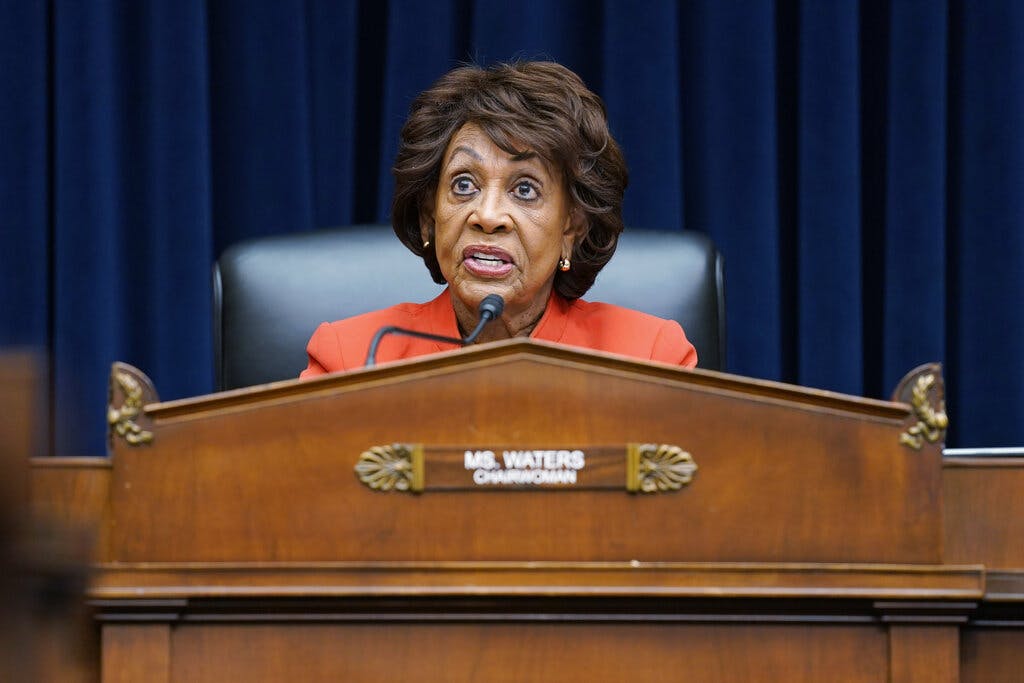The House Wants a New Mandate for the Federal Reserve
Democrats want the Fed to ‘minimize and eliminate racial disparities.’ Yet it has long since proven itself unable to walk and chew gum at the same time — that is, to fulfill both of its two major mandates, stable prices and full employment.

Let us mark the passage this week by the House of a bill to give the Federal Reserve a new mandate — to “minimize and eliminate racial disparities.” It offers a glimpse, if only that, of the early maneuvering over the question of whether our system of fiat money — lacking a link to specie, such as gold or silver — is to blame, at least in part, for the recent economic crises. This could move to the fore if the GOP gains control of Congress.
The bill — known as the Federal Reserve Racial and Economic Equity Act — is a project of Chairwoman Maxine Waters of the House Financial Services Committee and other Democrats. It would require our central bank to exercise all its duties and functions “in a manner that fosters the elimination of disparities across racial and ethnic groups with respect to employment, income, wealth, and access to affordable credit.”
We certainly support Ms. Waters’ goal of eliminating disparities in employment, income, wealth, and access to credit — if they are the result of racism. It’s less clear to us why Ms. Waters would turn to the Federal Reserve to solve this problem. It has long since proven itself unable to walk and chew gum at the same time — that is, to fulfill both of its two major mandates, stable prices and full employment. We’re now in a major inflation.
Support for Ms. Waters’ bill Wednesday was thin. The measure passed 215 to 207. Three Democrats voted no. Zero Republicans voted yes. The Senate just rejected as a Fed governor Sarah Raskin over her itch to make climate a Fed mandate. There was an effort to block Ms. Waters’ measure. It was led by Congressman French Hill, who has been pressing not to expand the Fed’s mandates but to reduce them to, so to speak, either walking or gum-chewing.
Mr. Hill’s measure is called the Price Stability Act of 2022. These columns put in a word for it in March, even before the measure had a name. It would do the opposite of what Ms. Waters’ measure would do. Mr. Hill’s measure would reduce the Fed’s mandate to a single assignment — price stability — and leave the rest, such as employment, climate, racial equality to other organs of government or other approaches in the Congress.
Mr. Hill told us this week that he sees his measure aspart of a “sound money agenda.” He hopes his measure will gain traction if Republicans retake the House in November. He says he’s been leading an “education campaign on inflation.” God’s work, we say. He sees Ms. Waters’ legislative “overreaching” as an “opening to debate it in a tangible way.” He sees his Price Stability Act of 2022 as a good start to a larger, more strategic effort at reform.
We mark all this because we think of monetary reform as the most important issue to get us to an era of stable prices and strong, equitable growth and prosperity. We need to address the reason the Fed keeps getting policy wrong. We like the way Judy Shelton put it in her latest column in the Wall Street Journal, where she’s arguing that the economy needs not artificially high or low interest rates but “meaningful price signals — real rates.” It’s hard to see how we get that in an era of fiat money.

